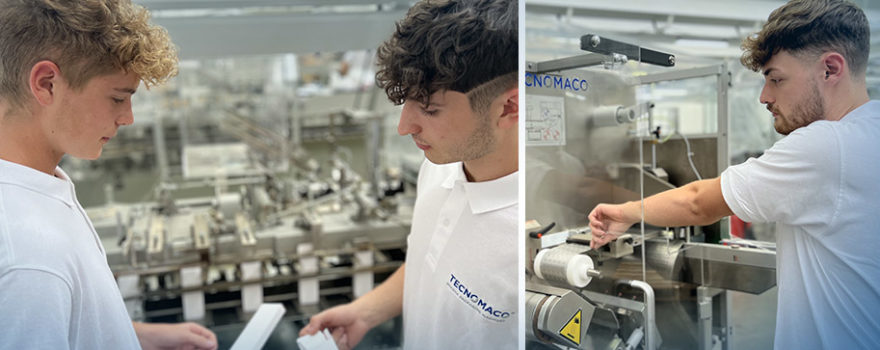
Digital natives, by definition, are close relatives to technological innovation. This familiarity is considered an added value by many companies, which decide to invest in the re-skilling and training of new resources by focusing precisely on younger people. To develop new skills and create figures capable of dealing with advanced production processes and increasingly sophisticated machinery. The signs of change are particularly noticeable in the mechanical and pharmaceutical industries, two Made in Italy excellences that have successfully straddled the digital transformation in recent years.
Mechanical industry 4.0: Italy’s highly innovative vocation
As Confartigianato points out, the mechanical industry to date represents a “key sector of made in Italy,” capable of combining innovation, quality and sustainability. Italy ranks first in Europe for investment in machinery, with a 3.7 percent increase in 2022 compared to 2019, mainly involving small businesses.
Going along with the digital transition, in this difficult three-year period, has enabled the most forward-looking entrepreneurs in the manufacturing sector to overcome the pandemic crisis. Data from the Mecspe Observatory, a leading trade fair for the manufacturing industry, show that as many as 8 out of 10 companies in the sector in Q1 2022 reported stable or even growing turnover.
Training new resources
Focusing on technological innovation has also prompted companies to invest in the search for specialised personnel, often looking in the direction of younger people. Mecspe’s snapshot of 2020 shows that, to manage the digital transition, 20 percent of companies in the manufacturing sector considered hiring young people specialised in the field of 4.0 technologies from universities or Higher Technical Institutes, who had already gained a short work experience. Thirteen percent considered setting up ad hoc training for young employees previously hired by the company; while 9 percent focused on young people with no experience and no specific background, with the aim of setting up in-house training paths.
The Italian pharmaceutical industry: one of the most modern and competitive sectors
The pharmaceutical industry requires very high-precision processes and machinery to ensure reliability, safety and reduced margin of error throughout the production chain. Investing in new technologies and skills has enabled Italian companies to successfully fit into the complex international picture, updating production to meet new market demands and the needs of increasingly health-conscious consumers. In Italy, the pharmaceutical industry is the sector with the highest share of innovative companies (about 90 percent, according to Farmindustria data). The ability to combine knowledge, excellence and innovation has helped create a solid supply chain with highly diversified skills and products, leading our country to be one of the main pharmaceutical hubs on a global scale. This is demonstrated by the fact that exports, over the past decade, have increased at a staggering rate: +117 percent, compared to an average of +103 percent in competitor nations such as Germany, Spain and France.
The competitiveness of Italian companies is also due to the generational turnover process, which can provide up-to-date specialised skills and professional profiles in line with the digital transformation taking place in production processes. According to Farmindustria data, in the last 5 years the percentage of young people employed in the pharmaceutical sector has increased by 13 percent and the female component, in this age group, is far higher than average (46 percent, compared to 27 percent in the manufacturing industry). The skills of the under-35s continue to evolve even after employment, which in 80 percent of cases is permanent, through “actions for training and professional development, under the banner of multidisciplinarity and soft skills.”